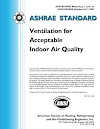INTRODUCTION
The JM Eagle™ Municipal & Industrial Water or Sewer Pipe product line is manufactured from a black High-Density Polyethylene (HDPE) material. High-density PE 3408/3608/4710 is a preferred material for water distribution in municipal and industrial applications. It resists growth of bacteria, algae and fungi. Its strength and resilience provide long-term life against both internal pressure and intermittent surge and water hammer. PE 3408/3608/4710 excels in horizontal directional drilling, plowing, river crossings, sliplining, pipe bursting and other trenchless installation techniques.
By following qualified heat fusion procedures, leak-free joints that are as strong as the pipe itself, work to protect our environment and conserve one of our most precious resources.
JM Eagle™ is a member of the Plastics Pipe Institute Inc. There are many helpful PE pipe articles available to the end user on PPI’s Web site at www.plasticpipe.org.
The JM Eagle™ Municipal & Industrial Water or Sewer Piping System can be joined by butt fusion, socket fusion, sidewall fusion, mechanical fittings or electrofusion. All methods are reliable means of joining the
JM Eagle™ Municipal & Industrial Water or Sewer Piping System. Generally, the choice of which system to use is at the discretion of the individual user. All fitting manufacturers’ recommended installation instructions should be carefully followed.
Installer training for the proper use and installation of polyethylene pipe is a critical factor in its long-term performance. The JM Eagle™ Municipal & Industrial Water or Sewer Pipe System has ample safety factors included in its design for providing reliable long-term performance in service, if the system is properly installed and operated at design pressures. The importance of proper training in the installation and operation of polyethylene plastic piping systems cannot be overemphasized. Installation and operating recommendations are included in this bulletin to help the operator develop effective training programs.
Publications by the American Society for Testing and Materials (ASTM), American Water Works Association (AWWA) and the Plastics Pipe Institute (PPI) can also be helpful. Use of this information will minimize the potential for failure resulting from improper design and installation practices.







0 Comments